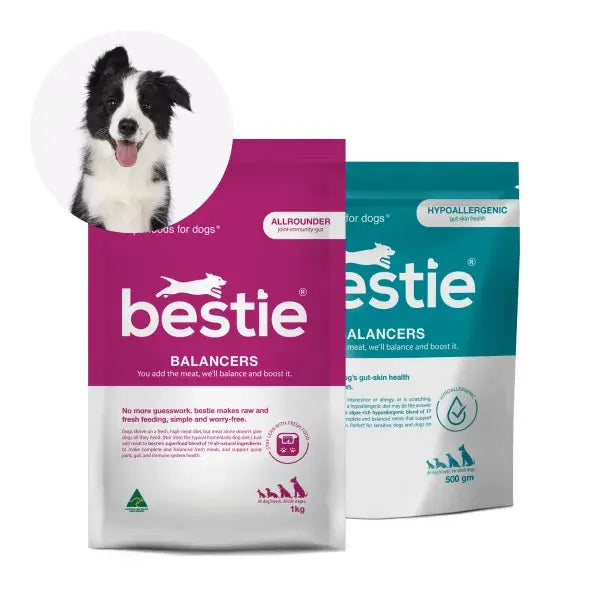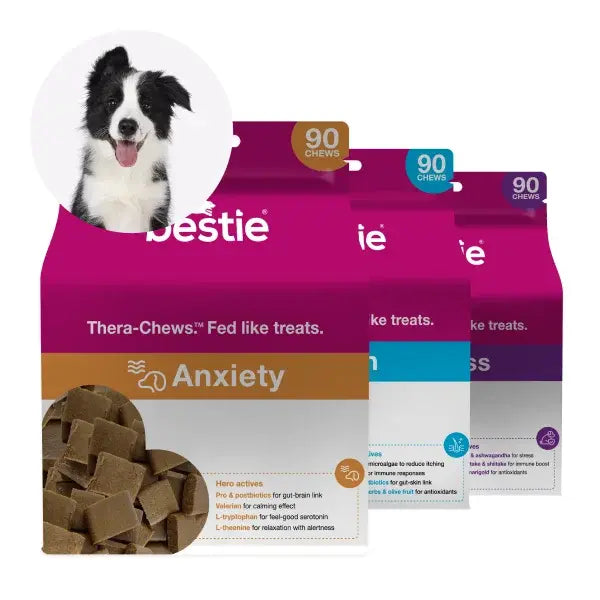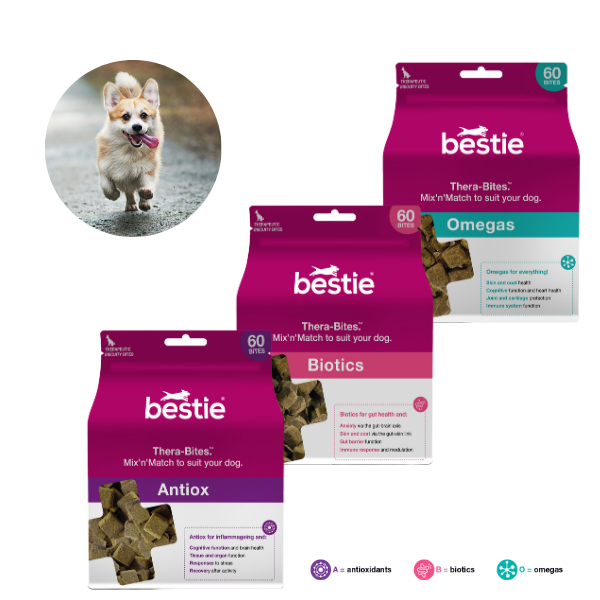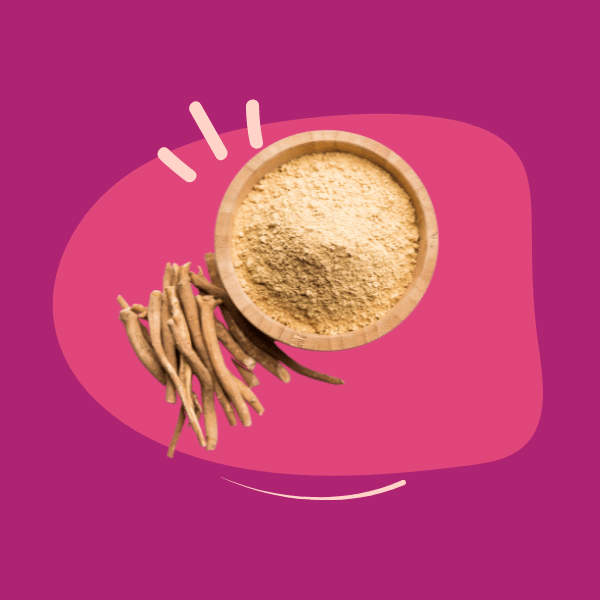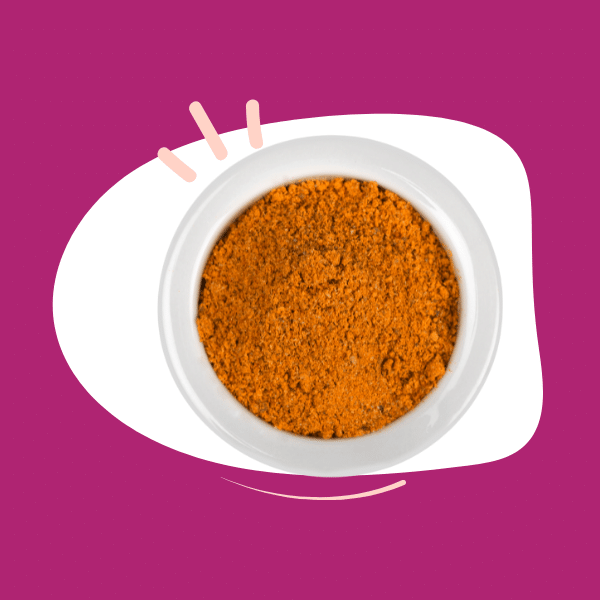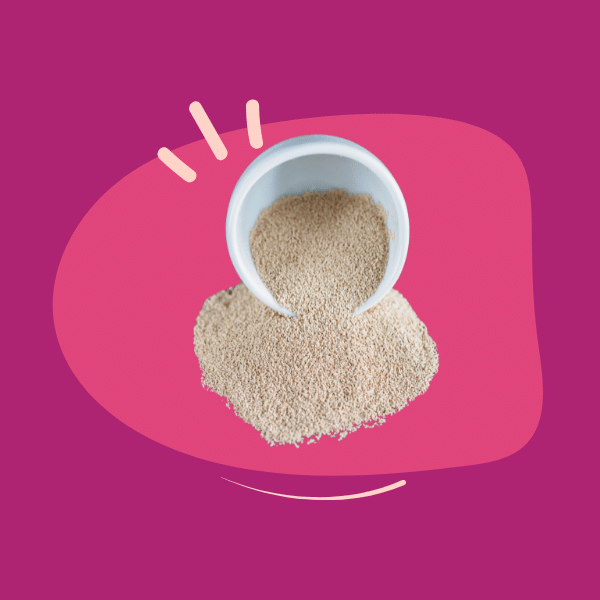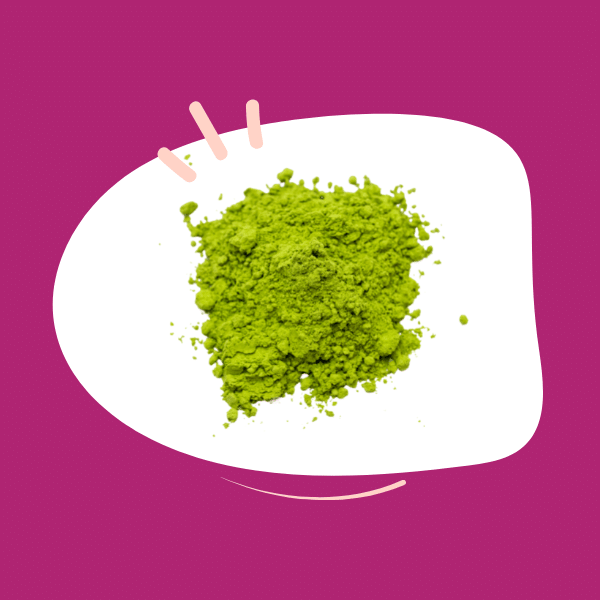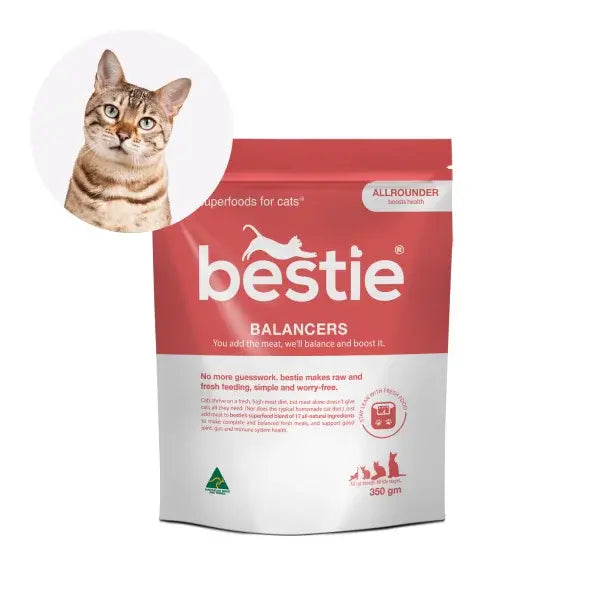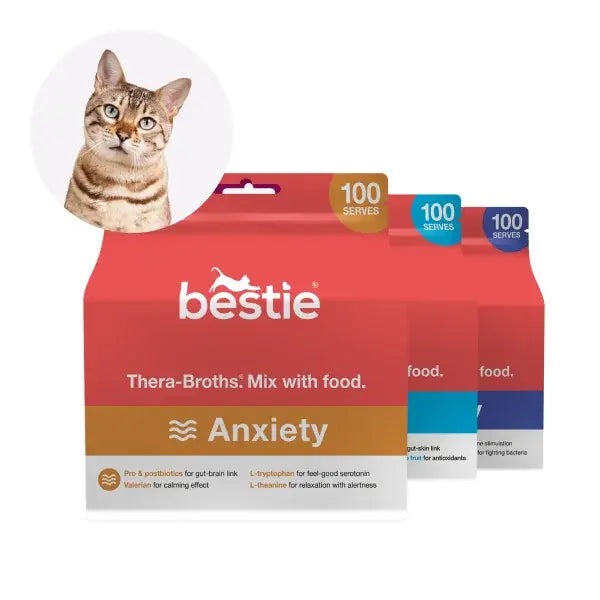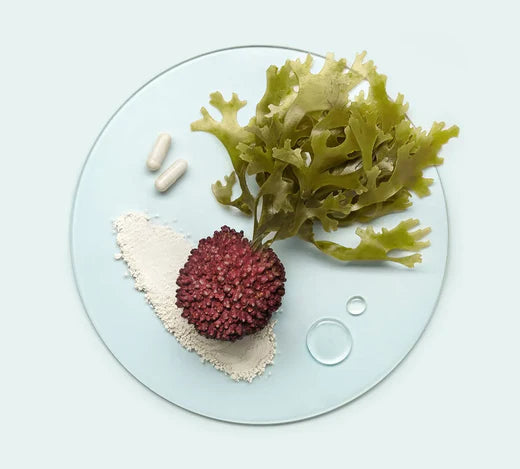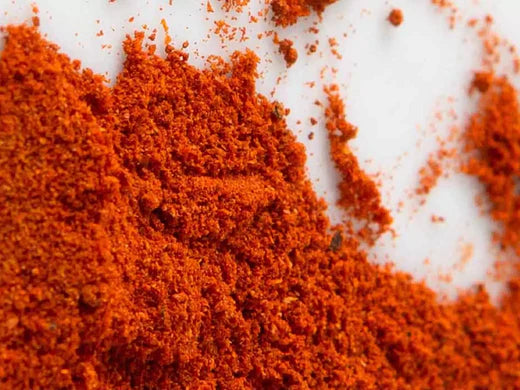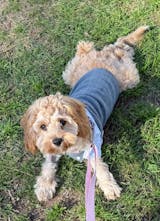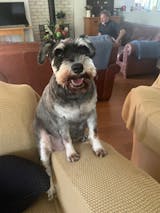Over the past ten years there's been a significant growth in omega-3 fatty acids supplements for pets. That's because they're beneficial for skin, coat, and joint health.
But what is DHA?
DHA, or Docosahexaenoic acid, is a polyunsaturated omega-3 fatty acid found throughout the body. It is a major structural component of brain tissue and the retina, a key component of the heart, located in healthy joints and plays a significant role in the control of multiple cell functions like inflammation or immune response. DHA omega-3 is therefore essential for proper body function and considered the most important nutritional lipid in our diet.
Healthy brains contain about 60% structural fats and 30% DHA in the gray matter. DHA is the most abundant fatty acid in the brain representing about 95% of the total omega-3s.
Not all omega-3s are equal!
Many pet food products claim to be a good source of omega-3 fatty acids, but not all omega-3s are equal. While DHA provides a broad range of health benefits, shorter chain omega-3s are mainly a source of energy.
In addition, shorter chain omega-3s don't convert efficiently to long-chain DHA in the body, partly because of the presence of omega-6 fatty acids competing for this conversion. Therefore, the supplementation of a preformed source of DHA is the preferred nutritional strategy.
However, cultivating algae under controlled conditions provides a consistent alternative source of DHA-omega-3 which is unaffected by seasonal fluctuations, the availability of marine sources, any geographic variability or unwanted shifts in quality.
DHA has many benefits through all life stages...right from puppyhood.
-
Visual development: A DHA enriched diet fed to dogs before whelping and during lactation allows puppies having a significantly improved DHA level in their retina, leading to improved visual performance in the developing dogs.
-
Brain development: Feeding dams a diet enriched with DHA during gestation and lactation has been associated with improvements in the neurologic development of their puppies.
-
Trainability: Puppies nourished with high levels of DHA were found to be more trainable than puppies given low levels of DHA, supporting the effect of DHA on neurological function.
-
Immune and inflammation response: Supplementation with omega-3’s positively influences the cell-mediated immune response. In dogs DHA supports anti-inflammatory effects along with positive effects on immune function.
-
Heart health: DHA is beneficial in dogs with cardiac disease and support anti-arrhythmic effects along with positive effects on heart rate and blood pressure.
-
Skin coat and care: Dogs with canine pruritic skin disease, supplemented with DHA, showed significant improvements in skin health and coat character over time. The quality of a dog’s paw pad is also linked to its DHA nutritional status. Dietary omega-3 supplementation is useful in the treatment of feline skin disorders including miliary dermatitis.
- Mobility and joint care: In dogs with osteoarthritis, omega-3’s help reducing the use of pain medication required. Omega-3 fatty acid supplementation can also lead to an improvement in weight bearing for dogs with osteoarthritis.
DHA for improved cognitive function
There's now further evidence that shows that food supplemented with DHA helps improve cognitive function in older dogs. With growth in the older dog population, more and more pet parents are experiencing the strain of having an older dog presenting with a decline in cognitive function. This condition is called Cognitive Dys - function Syndrome (CDS) and is compared to Alzheimer’s disease in humans.
Researchers believe CDS is caused by physical and chemical changes that affect the brain function in older dogs. Dogs with CDS may show signs of confusion and/or various other behavioural changes that are not a normal part of ageing.
Experts have developed a check list of symptoms in the general categories:
- Disorientation and confusion
- Reduced interaction with family members
- Atypical changes in sleep and activity
- A loss of housetraining.
In one study at the University of California-Davis, 62% of 11- to 16-year-old dogs showed signs in at least one category of CDS. Many pet parents will be trying to prevent the onset of CDS using nutritional intervention, because this condition is not reversible.
Cancog Technologies, world leaders in companion animal cognition and behavioural sciences also developed a series of behaviour based tests that evaluate the animal’s ability to visually identify and remember various objects and images. These tests are performed over time to determine changes in the animal’s performance based only on their daily diet.
The study used a standard commercially available dry dog food made with (test) and without (control) added DHAgold. The test and control diets were fed for 7 months to two cognitively equivalent groups of 8.5 to 11 year old dogs.
Over the course of this study, five different behavioural based tests were performed to measure components of visual performance, learning and memory which together describe an individual’s cognitive function. This was a blinded study meaning both the investigators and the technicians did not know which diet contained DHAgold until the end of the study.
Although there were several significant findings, two showed outstanding results – the concurrent discrimination and contrast sensitivity tests.
The concurrent discrimination test measured each dog’s ability to perform the task correctly over time. The group of dogs on the diet containing DHAgold performed significantly (p=0.0187) better than the control group over the 40 day period of testing.
Cancog researchers interpreted these findings and other related test results as an indication of improved learning and long-term memory due to supplementation with DHAgold.
For the contrast sensitivity test, each dog had to visually identify printed geometric images on a white background, with decreasing contrast with the measure being success rate. Naturally more correct answers are seen with 100% contrast (black on white) but greater differences between each group were noted as the contrast was reduced stepwise down to 5% (light grey on white).
Over 60% of the group of dogs on the diet containing DHAgold completed all levels of training, while less than 30% of the group of dogs on the control diet completed all levels of training.
Cancog researchers interpreted these findings as an indication of improved visual processing ability due to supplementation with DHAgold involving the retina, cerebral cortex and possibly both.
Although studies have been done demonstrating fish oil enriched diets improve puppy trainability, only this Cancog study evaluating a standard diet containing DHAgold demonstrated improved overall cognitive function in older dogs using a multi-dimensional test design.
Sustainable alternative to fish oil - and more DHA!
Currently fish oil is the ingredient most used by the pet food industry as a source of omega-3 fatty acids. But fish oils have many challenges.
- As a liquid, it must be carefully applied in production using pumping equipment and metered to deliver the right amount.
- It is calorie dense and careful consideration must be made to limit the use of other calorie dense fats and oils in the formulation.
- It is a highly unstable fat which requires strict quality control specifications and diligent use of antioxidants to control lipid oxidation.
- The total omega-3 fatty acid concentration and ratio of the specific fatty acids DHA and EPA is often different depending on the source of fish and the extraction and refining process.
- Fish oil can also contain many contaminants like heavy metals, PCB, dioxin and antibiotics.
- It can impart a rather strong fish odor which is not always acceptable, depending on the type of pet product being produced.
- Ultimately, the biggest challenge for the pet industry is procuring good quality fish oil and competing with the rapidly growing human industries demand for omega-3 rich ingredients.
It is important to understand that fish do not create their own omega-3 fatty acids. The original source of these fatty acids is marine algae. Fish oil contains DHA and EPA because of the food chain in the ocean. Unless farm raised fish are fed ocean fish or algae, they do not contain these important omega-3 fatty acids.
Fish farmers are slow to adapt algae as a source of omega-3 because it is typically a low margin industry and algae is more expensive than crude ocean fish by-products. Consequently, overfishing our oceans has become a real issue. Entire species of ocean fish are at risk of extinction due to the growing demand for omega-3 rich fish oil.
A high quality, whole-cell, marine algae can be a feasible alternative to ocean fish derived raw materials. Algae grown by fermentation has many positive attributes.
- It is a rich, highly sustainable source of the most desired omega-3 fatty acids and not limited by a natural resource.
- It is devoid of the contaminants found in fish sources.
- A high quality algae is odoUr and color neutral, allowing greater flexibility in the development of pet food products.
- The dried whole-cell algae ingredient DHAgold that we use at Planet A, contains almost twice the concentration of DHA found in fish oil.
DHAgold is a whole cell, microalgae that's a sustainable, natural source of nutritional lipid as an alternative to fish oil. This unique ingredient also contains protein, dietary fibes, minerals, and other nutrients important for a complete and balanced diet.


